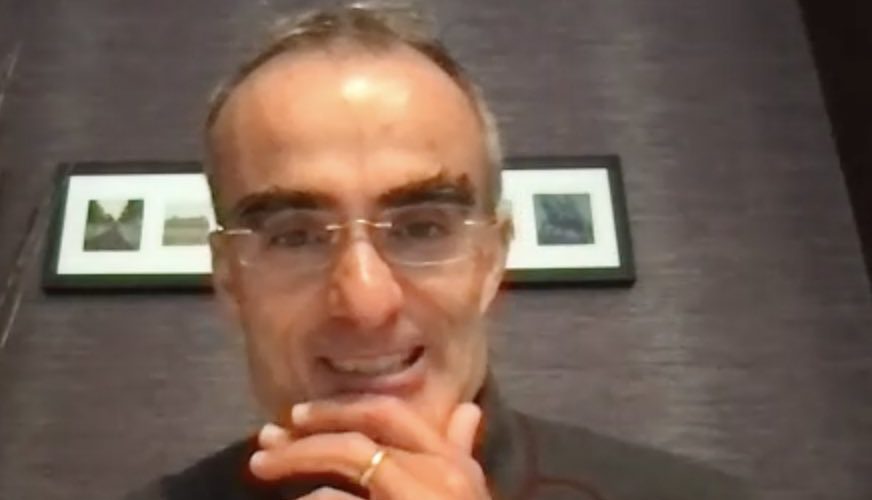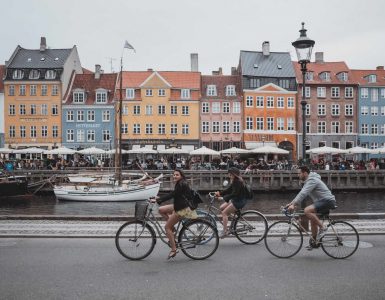“If you want to go quickly, go alone. If you want to go far, go together.”
A popular proverb that emphasizes the importance of community and the power of doing things together.
When we discuss climate change, there are mostly assertions that suggest doom and gloom. If we look on the positive side, there is a lot of credible climate action happening on the ground. Many individuals are working on climate-friendly solutions to mitigate environmental damage at the local level.
The actions that are happening at the individual or local level need to be amplified such that it not only creates greater awareness but also mobilizes more contributors. It is time that we assimilate these individual actions such that it becomes actions of the whole community.
That’s where a UK-based charity has decided to come in. Carbon Copy is a community platform that helps rally action around climate initiatives and climate justice. The company amplifies the role of individuals and communities in climate actions at the local level such that the broader public becomes aware and replicates in their own sphere.
Starting in 2020, Carbon Copy has taken a slew of initiatives to bring people together and contribute towards a common goal of addressing climate change. The biggest of them is the Climate Relay, a unique event that brought thousands of people from different countries.
The participants of the Climate Relay took a non-stop relay marathon from the location of the 2021 edition of the CoP summit, Glasgow in Scotland to Sharm el Sheikh in Egypt, the location of the 2022 CoP summit.
Conference of Parties (CoP) under the aegis of the United Nations Framework Convention on Climate Change, conducts an annual CoP summit, that brings the world’s top leaders and decision-makers. In the 2021 climate summit (CoP 26) , over 190 countries signed the Glasgow Climate Pact to uphold the 1.5 degrees celsius target and also achieve the outstanding elements of the Paris Agreement.
We had an insightful conversation with the founder of Carbon Copy, Riccardo Casale about his charity and Climate Relay. After working in diverse sectors like technology, consulting, and marketing, Ric wrote the book Civic Revolution. A Citizen’s Guide in 2019. The book became a turning point in his life as it inspired him to start Carbon Copy.
In our discussion, Ric also shared his perspectives on climate events and the power of community-based climate actions.
Below are the edited excerpts of our conversation, for the full discussion you can watch the video on YouTube.
Tell us what led you to start Carbon Copy and what were you doing prior to this.
Carbon Copy was the next chapter in my life after writing a book. The book was about civic action and the collective power we have in places where we live to create a real tangible impact. As part of the book I spoke to many people and it was very empowering to listen to people who were telling these stories.
I wanted to do little more than just write a book about it and therefore decided to roll up my sleeves and help amplify the stories.
Carbon Copy is a climate action charity based out of the United Kingdom. It is a platform that intensifies the stories of individuals that are implementing climate action.
Before that, I have done strategy consulting, and corporate marketing and have been involved in many tech startups. So I had a very eclectic and business-oriented background.
Now I am very much focused on the non-profit sector and driving it with a purpose-led approach.
When did you start Carbon Copy and how is it helping in Climate Action?
Each country is different in terms of its setting and context.
In the UK, we are world leaders in putting out targets and are woeful when it comes to meeting those targets. However, the interesting aspect of the United Kingdom is the level of ambition at the local area level.
At the national level, we have a target to achieve net zero by 2050, while in more than half of the local areas in the entire UK we want to get to net zero by 2030. There is a real passion for moving faster, therefore it is not about pushing people, instead, it is bottom up.
One of the things we do at Carbon Copy is to make those voices louder. This will help in making these voices reach politicians and they will be compelled to respond to what people are doing in the democracy.
We started Carbon Copy in 2020 as a way to help all these local areas actions that are essentially moving in parallel with an inspiring ambition to get to net zero by end of this decade. However, there was not much joined-up action and if Carbon Copy can be a conduit for that action then it will stop people from reinventing the wheel and achieving their goals faster.
The name of the charity Carbon Copy also talks about the opportunity where people can leverage the best practices and copy them.
Tell us about the initiatives taken at Carbon Copy
Tackling climate change is fundamentally a communication challenge and not a technical one. It’s about figuring out the right way to communicate with people such that they see the benefits sooner than later.
A lot of initiatives that we have done are around how we connect to the broader audience. I don’t want to talk to environmentalists instead we need to reach people that are receptive and willing to take action but for whatever reason, they are not. That’s how we can create a social tipping point. We have taken many different initiatives toward this, some of the major ones are –
- In April 2022, we organized the biggest UK photography exhibition around the environmental crisis and what people are doing locally to address that.
- We have mapped out the entire United Kingdom’s 380 local authority areas and their climate action plans which gives people visibility of the plans that exist and where they can contribute.
- Our online publishing platform allows different organizations to share what they are doing toward climate action.
Tell us about Climate Relay
It is quite breathtaking to think about the audacity of coming up with the idea of putting together the world’s longest nonstop relay.
Last year global climate summit (CoP 26) was in Glasgow and this year it is being held in Egypt, which is about 7700 kilometers away. We wanted to connect the two summits with people running in the name of climate action through a Climate Relay. The name of this relay is “Running Out Of Time”, and is the world’s first such event where participants are running nonstop day and night for 38 days.
There is a message that’s in the relay baton and is going to be delivered by hand to world leaders. I think this is very powerful as opposed to sending an email for instance.
One more thing we did about the route is that we wanted to highlight a lot of incredible people and projects that are taking place on the ground throughout the 18 countries that we run through. There is not enough publicity behind the incredible things they are doing. Just because they are doing things locally that doesn’t mean that it is having a smaller impact. Often these things can be replicated in many different places and that’s how things scale. The relay run is attracting a huge amount of media attention we are shining that light back on those projects. This is a fantastic mechanism for conveying to a wider audience the impact of what people are doing on the ground.
In addition, there is also a very powerful metaphor, the unity and determination to make this climate relay happen is the kind of action we want to see from policymakers to address the climate crisis.
What triggered the idea of conducting a relay for Climate Change?
In the last climate summit (CoP 26), I was part of a small team that walked for 25 days from London to Glasgow, which is about 500 miles (~804 km). It was a similar event at a much smaller scale where we wanted to highlight projects, for which we held town hall events throughout the entire route.
The trigger for Climate Relay came when we had a discussion with World Relay, the team which has the experience of conducting massive participation events while we bring the climate and environmental aspects. This for me was a massive step up but had the same kind of logic.
How did you manage the resources to pull off this huge event?
You need to have a massive amount of manpower on standby to pull up something like this. This is also a really powerful metaphor, as when you set your sights very high it inspires other people to say how can I help? In many ways the bigger the ask the more help you get and that’s really encouraging. We are pleasantly surprised with the number of people right who volunteered their help including many organizations that are involved in this event.
The designers of the relay baton are the award winners for designing the 2014 Glasgow commonwealth baton. There is a professional film company involved, which is going to create a Netflix documentary of the event and is doing it pro-bono because they want to get this message out to a wider audience. A car company has given us a hybrid car for the support crew. All support crew members have volunteered their time for 38 days and nights.
What is the ultimate message that you want to convey to the world leaders at the climate summit?
The climate message was written with the help of young people, it urges more support to help tackle the climate crisis in places where they live.
That support can come in a lot of different ways. Like it can come in a way of quality education so that people know more about the current situation and what they do about it. Support is also needed to bring the financial resources and also in terms of devolved decision-making instead of top-down.
In essence, we are saying that to solve a complex issue like climate crisis at every level, you need to have international cooperation, national-level leadership, and positive policies in place.
When we look at the kind of policies we want going forward, we also need to think about the delivery of those policies. As earlier mentioned that though the UK is the leader in policy-making but we are falling behind on the delivery.
Delivery comes from thinking about what people need in our towns and cities and countryside. People need the tools and resources where they are living and it is really important that we think that piece through when we are making top-level policies.
What is your take on previous Climate events?
We can look at almost all the previous COP with a sense of disappointment about what didn’t happen. In many ways, we are set up for failure because the representatives are representing what people from their respective countries want or telling them. It shines a little mirror on us, because if we are clamoring for certain things then elected representatives should represent our interests.
Nonetheless, there is a lot that we can do with or without them. With them, we can move faster but even without them, we are seeing people making tangible progress in the places where they live.
This local collective effort and the tangible results that you see irrespective of what is happening nationally or internationally are very empowering and it creates a sense of agency.
Do you think the onus is a little more on the developed countries?
A lot of countries have historically contributed to global warming, including the UK, on account of the Industrial revolution. While referencing this, you get into the quagmire of whether they should be accounted for and how they should be accounted for. It gets back to where we are and we need to move forward positively.
In many ways, a lot of countries that are in different stages of development do not need to follow the same trajectory. We are now in a lot smarter place in terms of green and clean energy. As an example, if it is possible to bypass coal and go straight to solar, wind, or geothermal, then you will not have the legacy of having a power station that is coal-fired.
There is an exciting opportunity to learn from the mistakes of some of these other countries and embrace the next wave of technologies.
What are the plans for Carbon Copy?
We are still very much focused fundamentally on the opportunity to communicate to a wider audience, to recognize that people are taking action and telling their stories. The more we help people to learn and share best practices and move ahead faster the better.
What is your personal connection with nature?
I am lucky enough of having a green space garden as I live in the countryside.
My strongest connection with nature is the dog we have. She is a wonderful addition to the family and helps me in connecting with nature and animals.
You can watch the entire conversation on our YouTube Channel






Add comment